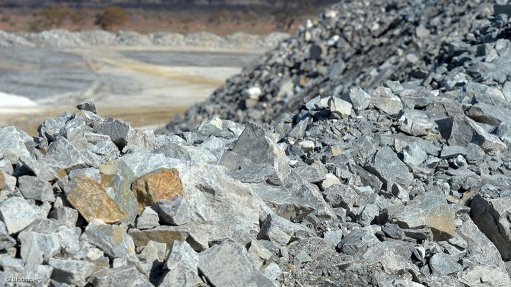
Photo by: Bloomberg
PERTH (miningweekly.com) – The Western Australian government on Tuesday revealed that some A$3-billion of additional lithium processing proposals were currently in development across the state.
The planned investments were in addition to the near $2-billion that US major Albemarle has invested, as well the $755-million from a joint venture between Chile’s Sociedad de Minera y Quimica and Kidman Resources, BHP’s investment at the Kwinana nickel refinery, and Tianqi Lithium’s A$700-million lithium hydroxide plant.
“The scale and significance of [the planned lithium processing] projects has the potential to create jobs in Western Australia and to add to the already strong and highly skilled workforce,” Mines and Petroleum Minister Bill Johnston said at Paydirt’s Battery Minerals conference, in Perth.
He noted that the number of full-time workers on lithium projects in Western Australia had increased from 399 at the end of 2014 to the current 2 600 staff.
“The task now is to continue to grow the level of processing undertaken here in Western Australia, increasing the amount of battery minerals we process and the scale of existing processing.
“The high level of investment into Western Australian processing ventures demonstrates the state’s world-recognised expertise to extract, process and value add to future battery minerals,” the Minister said.
Western Australia has become one of the world’s largest suppliers of key battery minerals, and has substantial reserves of all minerals used in the manufacturing of batteries including lithium, nickel, cobalt, manganese, aluminium and vanadium and has the capacity to extract these minerals and add value.
The state is the top producer, globally, of lithium, the second largest global producer of rare earths, the third largest global producer of cobalt, and the fourth largest global producer of nickel.
Western Australia also produces non-battery minerals used in manufacturing of electric vehicles and energy storage systems, including rare earth elements that are necessary for the production of electric motors.
“The growing demand for batteries is a significant opportunity for Western Australia to capitalise on, and could provide a long-term source of investment, economic diversification and job creation,” Johnston added.
He noted that investment in lithium has also acted as a catalyst for investment in the exploration and processing of other battery minerals including nickel, cobalt, alumina and vanadium.